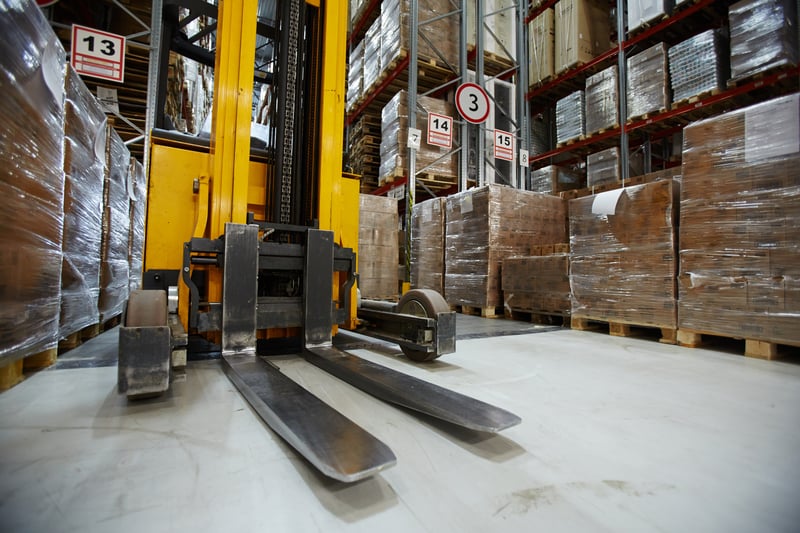What Type of Solid Tire Should I Use on My Forklift?
In recent years, solid tires have become an increasingly popular tire choice for forklift operators working everywhere from the smooth concrete floors of warehouses to the debris-filled ground of construction sites. Because of the diverse roles forklifts are asked to fill, tire manufacturers have developed an equally diverse range of solid forklift tires. With so many options available, it can be difficult to decide what tire is correct for your application—which is why we came up with this handy guide for the different types of solid forklift tires.

The Two Types of Solid Tires
Because forklifts have no suspension, any floor surface irregularities are directly transmitted to the machine’s bearings, causing higher maintenance costs, increased downtime, and, ultimately, higher operational costs. Because of this, there are two solid options available for forklifts: solid pneumatic and press-on band.
Solid Pneumatic Tires
Solid pneumatic tires, also often known as resilient tires, strike a balance between press-on solids and traditional pneumatic tires, as they provide the stability and puncture resistance of a press-on with reduced sensitivity to bumps and vibrations. The improved ride quality of solid pneumatics can increase ride quality, minimize operator fatigue, and improve productivity.
Solid pneumatic forklift tires are typically constructed using either two or three layers of rubber, with each layer using a unique rubber compound. Two-layer resilient tires feature an inner heel composed of a hard rubber compound with an outer layer using a rugged, abrasion-resistant compound for extended service life.
In comparison, three-layer solid pneumatic tires, such as our Galaxy Yardmaster SDS, feature three layers of high-performing compounds: an inner heel made from hard rubber for excellent stability, a special softer center compound for a smooth pneumatic-mimicking ride, and a robust cut- and chip-resistant tread compound capable of dissipating heat for extended service life. The ability of three-layer solids to lower heat buildup allows the tire to run continuously, making it a popular choice for operations running multiple shifts.
Solid pneumatic tires are ideal for applications on rough, abrasive, and uneven surfaces such as damaged concrete floors, asphalt, and construction sites.
Press-On Tires
Press-on tires, also commonly called band tires, are popular for their puncture-proof construction and incredible durability, as well as for their ability to handle high loads and provide excellent stability. Because of the way they’re constructed—with less rubber than their solid pneumatic counterparts and the presence of a steel band—press-on band (POB) solids are the most stable forklift tire option, making them ideal for equipment operating with their forks raised.
Press-on solid tires are made of solid rubber (typically a single compound) molded to a steel band, hence the term band tires. Unlike pneumatic solids, which are interchangeable with traditional pneumatic tires, press-on tires can only be installed on a machine specifically designed for them. Because of the popularity of POB solids, the majority of machines manufactured for use in U.S. warehouses have hubs built to accommodate these tires.
Solid band tires are best suited for warehouse applications on smooth floors with no major surface irregularities. POBs, like our Galaxy YM SDS Press-On, are available with both smooth and traction tread patterns. Smooth treads are the ideal choice for machines working on dry surfaces, while traction treads are better for forklifts operating on damp or wet surfaces.
Pneumatic Tires
Although solid tires are becoming increasingly prevalent on forklifts, there are still some applications where a traditional pneumatic tire will be best. For example, equipment doing a lot of outdoor work, operating on unprepared surfaces, or driving over bumps will benefit from the cushioned ride of a pneumatic tire.
Choosing the right type of tire—solid pneumatic, press-on, or traditional pneumatic—for your forklift’s application can have a dramatic effect on your machine’s performance, as the “right” tire can increase a machine’s productivity, efficiency, and safety while also reducing downtime and fuel costs. To learn if a resilient or band solid tire is right for your machine, or to find out more about our line of Galaxy forklift tires, contact your local dealer or rep today!


